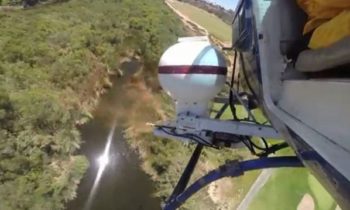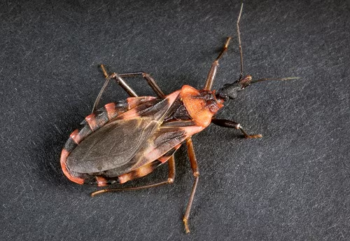A 91-year-old man from La Jolla has been confirmed as the first person in San Diego County in 2018 to test positive for West Nile virus, the County Health and Human Services Agency announced Friday.
The man was hospitalized in September with encephalitis but was confirmed yesterday to have West Nile virus after testing done by the California Department of Public Health. He has been discharged from the hospital and is still recovering.
The man had not traveled outside the county within the month prior to becoming ill, so the infection resulted from a local mosquito bite. The County’s Department of Environmental Health trapped mosquitoes near his residence and is sending precautionary notices to residents in the area with information on mosquito prevention and protection. Mosquitoes recovered from those monitoring traps tested negative for West Nile virus.
There were only two cases of West Nile virus in 2017 in San Diego County. However, there were 22 cases in 2016 and two people died. To date, there have been 132 human cases in California this year, including two deaths.
West Nile virus is mainly a bird disease but can be transmitted to people by certain species of native San Diego County mosquitoes that first feed on an infected bird or animal and then a bite a person.
The vast majority of people who become infected with West Nile virus never know it and never suffer any symptoms. About two out of every 10 people who get infected suffer mild symptoms, including headache, fever, nausea, fatigue, skin rash or swollen glands. But in rare cases, West Nile virus can make people extremely ill and even kill them.
County public health and environmental health officials said the best way for people to protect themselves against the virus was to follow the County’s Prevent, Protect, Report guidelines. These guidelines can also help county residents protect themselves from mosquitoes that transit West Nile virus as well as invasive Aedes mosquitoes that can transmit tropical diseases, including Zika, dengue and chikungunya, if they first bite an infected person and then bite non-infected people.
Prevent mosquito breeding
Dump out or remove any item inside or outside of homes that can hold water, such as plant saucers, rain gutters, buckets, garbage cans, toys, old tires, and wheelbarrows. Mosquito fish, available for free by contacting the Vector Control Program, may be used to control mosquito breeding in backyard water sources such as unused swimming pools, ponds, fountains and horse troughs.
Protect yourself from mosquito bites
Protect yourself from mosquito-borne illnesses by wearing long sleeves and pants or use repellent when outdoors. Use insect repellent that contains DEET, picaridin, oil of lemon eucalyptus, or IR3535. Make sure screens on windows and doors are in good condition and secured to keep insects out.
Report possible mosquito activity
Report increased mosquito activity, or neglected, green swimming pools and other mosquito-breeding sources, as well as dead birds — dead crows, ravens, jays, hawks and owls — to environmental health’s Vector Control Program by calling (858) 694-2888 or emailing vector@sdcounty.ca.gov. Also report if you are being bitten by mosquitoes during daylight hours, or if you find mosquitoes that match the description of Aedes mosquitoes by contacting the Vector Control Program at (858) 694-2888.
For more information about mosquito-borne illnesses, go to San Diego County’s “Fight the Bite” website.






